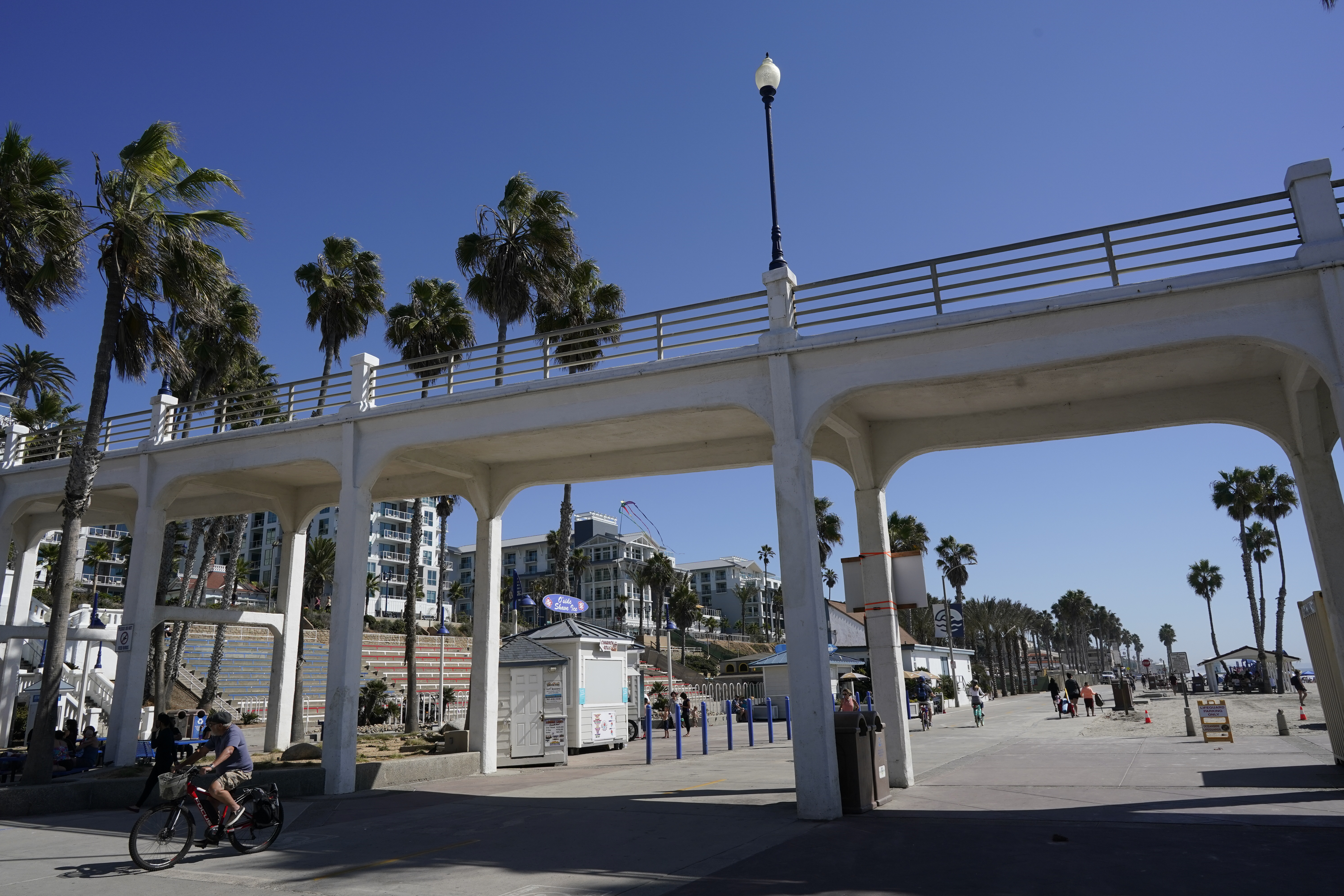
Members of California's Congressional delegation asked FEMA this week to reconsider its decision to refuse to reimburse a number of local governments for a portion of the millions of dollars spent during the COVID-19 emergency to house some homeless people in hotels.
Congressman Robert Garcia (D-Long Beach) authored the letter and said cities and counties, "reasonably believed," they would be reimbursed for money spent under the umbrella of the state's "Project Roomkey," which sheltered more than 60,000 people in hotels.
Local governments were expecting about $300 million more in these reimbursements in California, including about $60-million for cash-strapped Los Angeles, which authorized the spending under the assumption the federal disaster money would arrive.
Ventura County said it was expecting nearly $22 million, and said in a letter FEMA's decision has placed an immense financial burden on the County.
Get Southern California news, weather forecasts and entertainment stories to your inbox. Sign up for NBC LA newsletters.
"This after-the-fact policy change passed down by FEMA will without a doubt result in a substantial budgetary shortfall in our county, jeopardizing our ability to provide other crucial county services," wrote Patrick Maynard, the director of emergency services for the Ventura County Sheriff's Department.
FEMA notified the state last October that only hotel stays of 20 days or less were eligible for reimbursement, a time limit that Congressman Garcia said was not communicated to state or local agencies.
"We note that no previous cap had ever been noticed by FEMA," the letter said.
COVID RELIEF SPENDING
A FEMA spokesperson told the I-Team Wednesday that its criteria for emergency funding didn't change, and the agency has committed a total of more than $9.4-billion to California for COVID relief programs.
“FEMA did not revise eligibility for non-congregate sheltering or any other COVID-19 related activities in order to reduce costs," the agency said in a written statement.
"FEMA, under its Public Assistance Program, works closely with State, Tribal, Territorial and Local governments to provide all eligible and available funding for reimbursement, and will continue to do so for those impacted during the pandemic.”
A January letter sent from the California Office of Emergency Services complained that FEMA imposed the 20 day time limit retroactively, and the decision will cause financial burdens on local governments that expected the money.
"Cal OES urges FEMA to rescind the decision…as it changes the rules for reimbursement…after services were provided and directly conflicts with prior FEMA guidance," wrote Cal OES director Nancy Ward.
Mayor Karen Bass's budget projection for the 2023-2024 fiscal year included the expectation that the FEMA money would arrive.
City Controller Kenneth Mejia has warned the City's spending is already exceeding revenues, and budget projections put LA, "deeply in the red for the next five years."



